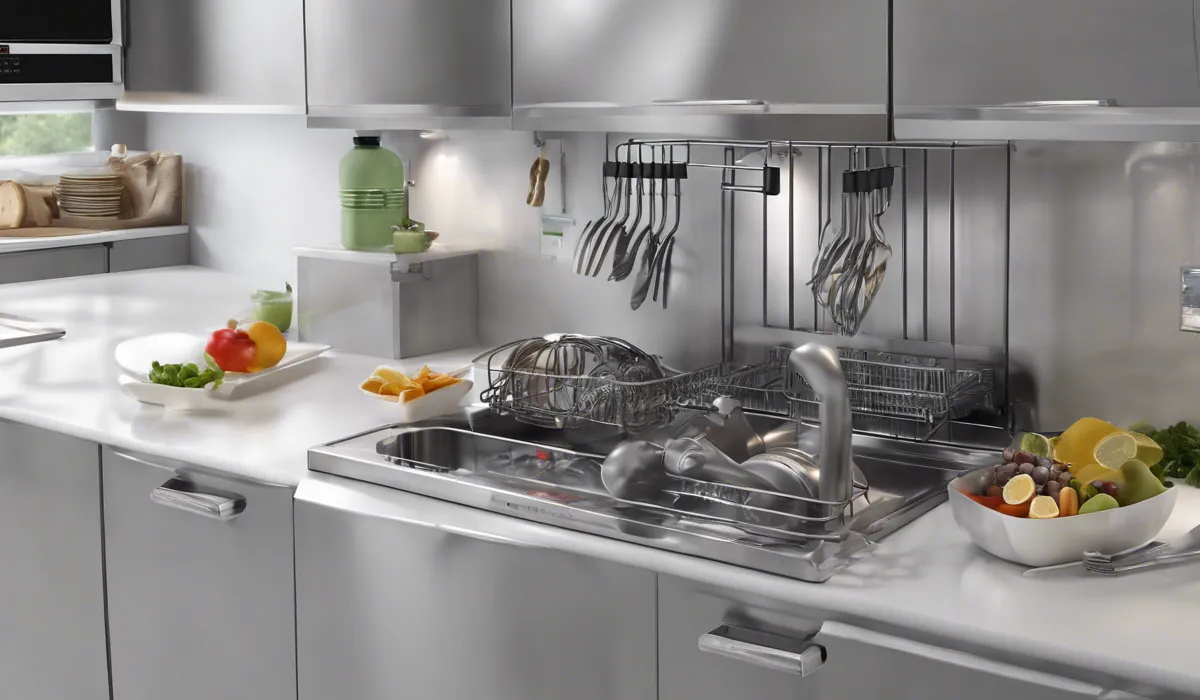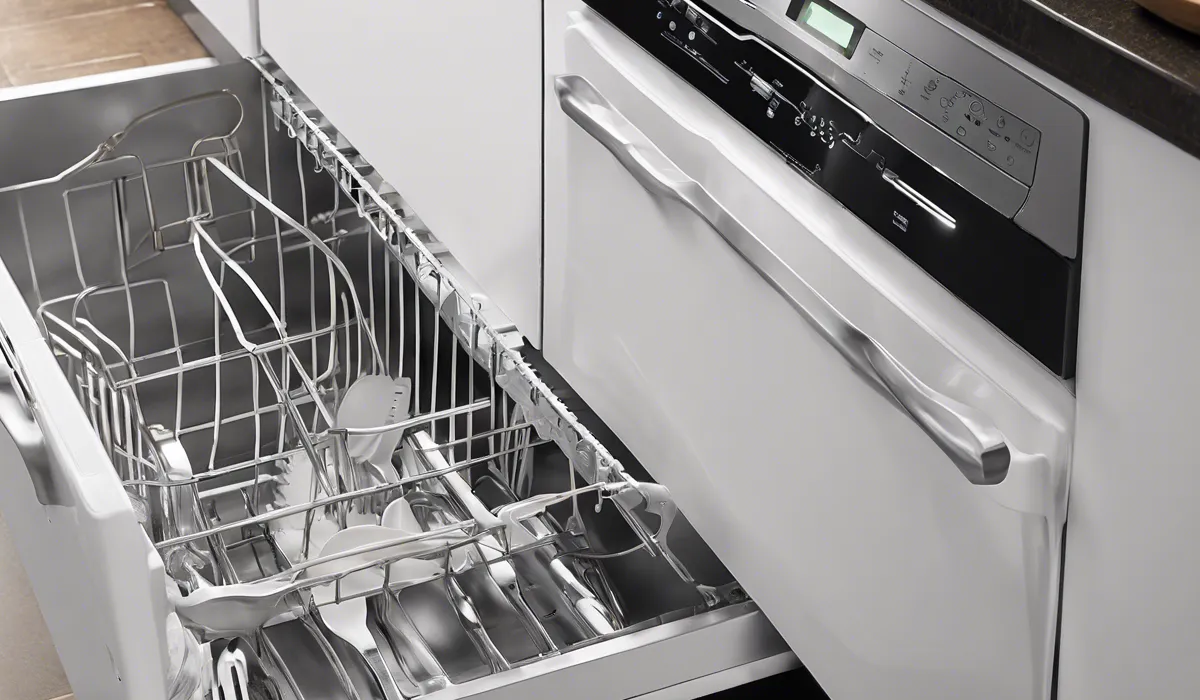What Gauge Wire for Dishwasher: Essential Guide for Safety
For most dishwashers, a 12-gauge wire is recommended when connected to a 20-amp circuit. This gauge ensures a safe and adequate electrical supply for the appliance’s operation. Always adhere to local electrical codes and manufacturer’s instructions.
Understanding Dishwasher Electrical Requirements

Voltage and Amperage Needs for a Typical Dishwasher
A dishwasher requires a specific voltage and amperage to function correctly. In the United States, the standard voltage for a dishwasher is 120 volts, provided by a household electrical system.
The amperage, which measures the electrical current flow, varies depending on the dishwasher model but typically ranges from 10 to 15 amps.
It is crucial to understand your dishwasher’s specific amperage needs as it determines the capacity of the circuit breaker and the wire gauge necessary for installation.
Matching Wire Gauge to Appliance Specifications
Selecting the correct wire gauge for your dishwasher is vital to ensure safety and appliance efficiency.
The wire gauge indicates the wire’s thickness, which correlates to its current-carrying capacity. A mismatched wire gauge could lead to overheating and potentially a fire hazard.
Always refer to the manufacturer’s specifications to choose the right wire gauge for your dishwasher’s amperage requirements.
The Role of the National Electrical Code in Wire Size
The National Electrical Code (NEC) sets the standard for safe electrical design, installation, and inspection to protect people and property from electrical hazards.
The NEC specifies the minimum wire gauge sizes for various amperage ratings to ensure a safe electrical connection for appliances like dishwashers.
Adhering to the NEC guidelines is not only a matter of safety but also a legal requirement in many areas.
Selecting the Appropriate Wire Gauge

Common Wire Gauges for Dishwashers
For most dishwashers, 12-gauge wire (12 AWG) is recommended when connected to a 20-amp circuit. This gauge ensures a safe and adequate electrical supply for the appliance’s operation.
In some cases, where the dishwasher has a lower amperage rating, a 14-gauge wire (14 AWG) might be sufficient, especially if it is on a 15-amp circuit. It is essential to confirm the correct gauge with the dishwasher’s amperage.
Factors Affecting Wire Gauge Selection
When selecting the wire gauge for your dishwasher, consider not just the amperage but also the distance from the breaker and the dishwasher’s wattage.
A longer distance from the circuit breaker to the dishwasher may require a heavier gauge to prevent voltage drop.
Additionally, understanding the dishwasher’s wattage can help ensure that the wire can handle the electrical load without overheating.
Benefits of a Heavier Gauge Wire
Erring on the side of a heavier wire gauge than what is minimally required has its benefits. A thicker wire can handle more current than necessary, providing an extra safety margin.
It reduces the risk of wire overheating and potential electrical fires. Moreover, it can accommodate potential future upgrades to more powerful dishwashers without the need for rewiring.
Installation and Safety Considerations

Step-by-Step Wiring Guide for Dishwashers
Properly wiring a dishwasher is a critical step in the installation process. Start by turning off the power at the circuit breaker. Connect the ground wire to the green screw on the dishwasher.
Next, connect the white (neutral) wire to the white wire on the dishwasher and the black (hot) wire to the black wire on the dishwasher, using wire nuts to secure them. Always refer to the dishwasher’s manual for specific instructions.
Dedicated Circuit for Dishwashers
It is important to use a dedicated circuit for your dishwasher to prevent overloading the electrical system.
A dedicated circuit serves only one appliance, ensuring that the dishwasher has enough power to operate efficiently and safely.
This also helps in isolating any electrical issues that may arise without affecting other appliances or circuits in the home.
Compliance with Local Electrical Codes and Safety Standards
Ensuring compliance with local electrical codes and safety standards is a key part of the installation process.
Local codes may have specific requirements that go beyond the NEC, such as the type of circuit breaker to use or additional safety precautions.
Always check with your local building department for the latest codes and obtain any necessary permits prior to starting your installation. Hiring a licensed electrician can help ensure that all work is up to code.
FAQs About What Gauge Wire for Dishwasher
What gauge wire is typically recommended for a dishwasher?
For most dishwashers, a 12-gauge wire is typically recommended when connected to a 20-amp circuit.
Can I use a different gauge wire for my dishwasher?
It is important to adhere to local electrical codes and the manufacturer’s instructions, which usually recommend using a 12-gauge wire for a 20-amp circuit to ensure safety and adequate electrical supply.
Is a 14-gauge wire safe for connecting a dishwasher?
A 14-gauge wire is generally not recommended for a dishwasher on a 20-amp circuit; a 12-gauge wire is safer and more adequate for such an appliance.
What could happen if the incorrect wire gauge is used for a dishwasher?
Using an incorrect wire gauge could lead to potential safety hazards, including electrical fires, and may also result in inadequate power supply to the appliance, causing performance issues.
Why is it important to follow the manufacturer’s instructions on wire gauge for dishwashers?
Following the manufacturer’s instructions ensures that the dishwasher operates safely and efficiently, and it helps to prevent electrical hazards and potential damage to the appliance.
Final Thoughts
When installing a dishwasher, it’s essential to use 12-gauge wire for a 20-amp circuit to ensure a reliable and safe electrical connection.
Compliance with local electrical codes and adherence to the manufacturer’s instructions are paramount for the safe operation of the appliance.





